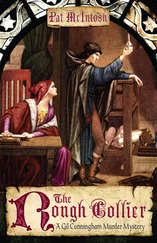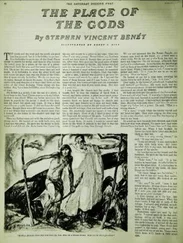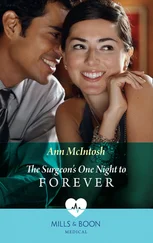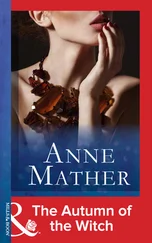Whether it was the new connection with the city Samuel had loved, my near-death experience, or my somber thoughts about Laurel, this was when I took my first faltering steps toward making peace with Samuel’s death. I did not forgive myself for the accident, but the ceaseless voice of denial stopped and I more readily accepted that my own actions had played a role.
I saw Tomas only occasionally after that first meeting. When I asked why he didn’t just help me to get out of the country he deflected my question with a joke, saying, “Why? Aren’t you being well looked after here?” And when I demanded to see Nahum’s engraving or tried to find out what progress he’d made in deciphering it, he gave me vague and unsatisfactory answers. Otherwise he behaved courteously enough, was even solicitous at times, but kept his distance. He opened up to me only on one occasion. Very late one evening I heard his footsteps climbing the stairs to the terrace. He’d brought glasses and a carafe of sweet wine with him. He sat down and poured us our drinks. He seemed in a very collegial mood. I couldn’t imagine what had caused this change of heart.
“You’ve been through a difficult time, Madison,” he said. “I can’t see how I could have done things any differently, but I owe you some thanks for the role you’ve played.”
I almost dropped my wineglass. Next thing you knew he’d be asking to be best man at my wedding. I’d gotten so used to his prickly, resentful attitude that I wasn’t sure how to react.
“I hope you understand what it’s been like trying to survive over here,” he continued. “Over the last months, there’ve been many times I’ve wondered if I’d make it this far. When the invasion began I was convinced we’d all be killed.”
I remembered what Ari had told me about his fiancée. “It must have been hell just trying to get out of Baghdad.”
“I don’t recall a great deal about fleeing the city. It was chaotic, I remember that much. People panicking, piling into vehicles, boxes and mattresses stacked on car roofs, traffic strangling all the major roads, looters going mad over the stuff they were grabbing. I spotted one man, by himself, dragging a fridge he’d stolen. When it tilted the door swung open. You could see the food and things still inside. People took anything they could get their hands on—plastic piping, hoses, even cables they’d strip to gouge out the copper. Looters sailed right through checkpoints. No one tried to stop them.
“On our last day we went to a friend’s place to borrow some petrol. I waited with the van while the others saw to getting the tank filled. I noticed a woman on the street who looked to be in her late forties, wearing traditional dress, but the hijab was missing. Her hair hung loose, falling in a jumble down her back. In one hand she held a running shoe.
“She behaved very strangely, bending down and rooting through a pile of litter, then turning in the opposite direction, she’d take a few steps and kick through a mound of dirt. A younger couple came up to her, grabbed her arm, and tried to haul her away, but she screamed at them and shook them off.
“Our friend told us she’d been hanging around for over a day like that. Apparently her three sons had been on their way home when a missile struck, killing them all instantly. Her youngest had his leg blown off. The woman had convinced herself that if she found his other running shoe, his leg would be restored and he’d come back to life. She’d simply turned mad with grief.”
I felt a stab of guilt, listening to him, even though I’d never supported the invasion. “That sounds like one of Ari’s stories.”
“He caught some of it on film, but I think it ended up on the proverbial cutting-room floor.”
“Laurel told me he’s won a lot of awards. So he doesn’t have to prove anything anymore. He could easily get a safer post somewhere else in the Middle East. Why does he want to stay here?”
Tomas leaned back in his chair, swilling the wine in his glass absentmindedly. “I wish I could answer that. For a long time I thought he was attracted to the action, like a soldier getting high on danger. I don’t think that anymore. Now I believe he just started in the business too young. When he was too impressionable.”
“What do you mean?”
“In his first year of university, a news outlet hired him to cover events inside Iraq during the Gulf War.” Tomas gave me a sardonic grin. “You can imagine there weren’t a lot of volunteers for that with Hussein in power. Ari had wanted to be a portrait photographer; he wasn’t even thinking about journalism. But he accepted. I wish he hadn’t. He saw things that broke his heart. Hospitals where entire floors were slick with blood, people burned so badly pieces of their skin slid off where you touched them. That changed him forever.”
He drained his glass and stood up. “Ari’s a survivor though. He doesn’t take stupid risks.” He glanced at his watch. “I have to go now. Let’s talk again over lunch tomorrow.”
“Fine,” I said. “What’s happened to put you in such a good mood?”
He gave me a sly smile and turned away. “Tomorrow. You’ll know then.”
The room where we had lunch the next day was spotlessly clean and bare, holding only a large rectangular table covered with a cheap plastic tablecloth, patio chairs, and a canvas stool with a Bible lying on it. A crucifix hung on one wall, along with pictures—inexpensive prints in faux gold frames, all with Christian themes: Jesus turning water into wine, a scene from the Garden of Gethsemane, the Last Supper. He said grace before we started and seemed agitated throughout the meal. Not in a bad way, but as though he was trying to keep the lid on some kind of suppressed excitement. I tried several times to get him to tell me his news, but he put me off.
After we finished and were sitting with our coffee he dropped his bombshell. “I’ve found the Assyrian treasure cache,” he said.
Thirty-four

Istumbled out of my chair. “What?”
“I’ve found it. King Ashurbanipal’s treasure.”
Given my experience in Turkey, for an instant I wondered whether he was being truthful, but he looked like a kid getting ready to dive into a mountain of Christmas gifts. I’d been totally caught off guard.
“That’s incredible. Where?”
He held up his hand. “Sit, sit. I’ll tell you everything. But first let me show you how I worked it out. You’ll recall one of Nahum’s verses, ‘And the queen is uncovered, she is carried away, and her handmaids moan as with the voice of doves; tabering upon their breasts.’
“Nahum’s writing is extremely clever; these lines have more than one meaning. Does this refer to the historical Assyrian queen, or is he playing with the metaphor of Nineveh as a woman? The reference to being ‘uncovered’ is a device. In ancient Assyria prostitutes were forbidden to wear head coverings on pain of death. That form of dress was permitted only for chaste and married women. And the worship of Ishtar was associated with prostitution. So the uncovered queen is a reference to the Assyrian goddess Ishtar. Nahum uses it to condemn the goddess.”
“You’re saying those lines are about Ishtar?”
He was too excited to sit for long so he got up and began pacing the room. “The first signal in the verses points to the queen as Ishtar, who’s been revealed and carried away to a secret spot. Doves are also commonly associated with her. Nahum was directing his collaborators to look for Ishtar’s resting place. That could only mean her temple.”
“That’s what you’ve found—a temple?”
His expression was jubilant. “A spectacular one.”
Читать дальше













